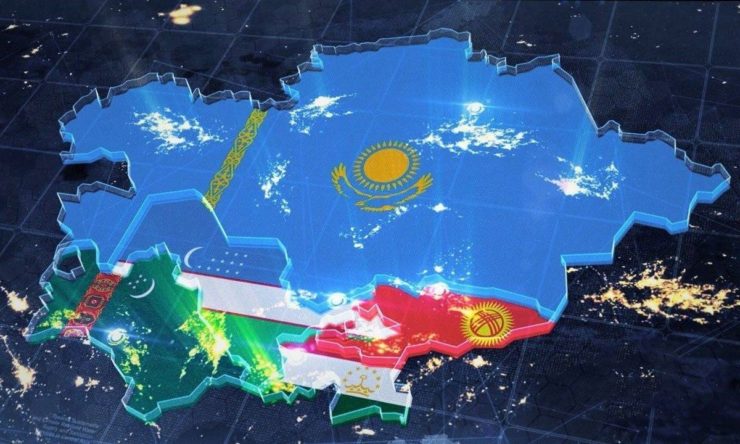
For the last few years, Pakistan has shifted its foreign policy from the one based on geopolitics to the one based on geo-economics. A long history of terrorism, political turbulence, and economic instability, caused by Pakistan’s involvement in regional conflicts, were the key drivers behind this shift in the foreign policy outlook of the nation. The decision was announced in Pakistan’s first-ever National Security Policy (NSP) document in December 2021. The nation decided to establish long-term economic relations with all the countries of the world without indulging in bloc politics. The Central Asian Republics are Pakistan’s center of focus in pursuit of this novel foreign policy ambition.
The Central Asian Republics (CARs) and Pakistan share over 3 decades of cordial ties. The relations between the two sides are characterized by cultural, religious, geographical, and historical ties. However, they share historical relations surpassing this span of 31 years. Central Asia holds a significant influence over the Islamic interpretation in Pakistan. Numerous Islamic saints including Imam Bukhari and Hazrat Baha’ al-Din Naqshband belong to this region and are highly revered in Pakistan. The Mughal Dynasty, which ruled the subcontinent for centuries and influenced the region’s religious and cultural landscape to a great extent, also hailed from the Central Asian region. Different connectivity corridors established under the Mughal Empire led to cultural exchanges, which still continue to influence Pakistan’s identity. The ties between these regions joined by the Wakhan corridor have added to the stability of the region.
In the recent past, numerous agreements and MoUs have been signed between Pakistan and different Central Asian Republics (CARs) to ameliorate the bilateral relations. Cooperation between the two regions can help in alleviating the financial conditions of both sides. Pakistan is an energy-scarce country, while the CARs are known for their energy and mineral resources. Pakistan can offer the landlocked Central Asian countries access to the seas. Thus, they could mutually benefit by establishing cordial ties. In 2021, Pakistan launched its “Vision Central Asia” initiative. The prime goal of this initiative was to strengthen ties with the CARs. This policy initiative focused on five key areas of cooperation between the two regions, which comprise trade, defense, regional connectivity, people-to-people contact, and economy. Pakistan intends to take a holistic approach to establishing cordial relations with the Central Asian countries through this initiative.
Imran Khan, the Former Prime Minister of Pakistan, visited Uzbekistan in 2022. Numerous agreements and MoUs have been signed between Pakistan and the Central Asian Republics during his tenure. Both sides agreed on the development of the Trans-Afghan corridor. This corridor will increase the prospects of trade between the two countries. In addition, this corridor will also lead to future connectivity with other Central Asian countries. 40-50 percent increase in the bilateral trade between Uzbekistan and Pakistan, in 2023, demonstrates the increase in bilateral ties between the two sides.
CASA-1000 is another major project that has cemented the relations between Pakistan and CARs. Tajikistan and Kyrgyzstan will transport surplus energy to Pakistan and Afghanistan under this $1.2 billion power project. This project will not only resolve the energy crisis of Pakistan but will also help Kyrgyzstan and Tajikistan to generate great revenue. Almost 3000 tonnes of coal was imported by Pakistan from Kyrgyzstan to fulfill the country’s energy needs. Another major project that demonstrates the strengthening ties between Pakistan and the Central Asian countries is the Turkmenistan-Afghanistan-Pakistan-India (TAPI) gas pipeline. This 1800 km long gas pipeline aims to export 33 billion cubic meters (bcm) of gas to Pakistan, India, and Afghanistan annually. This will not only enhance relations between Pakistan and Central Asia but will also lead to stability in South Asia by increasing cooperation between India and Pakistan.
The Shanghai Cooperation Organization (SCO) also provides immense opportunities for increased cooperation between Central Asian countries and Pakistan. China’s Belt and Road Initiative in Central Asia and CPEC in Pakistan have also increased the chances of connectivity and collaboration between the two regions. However, the success of regional connectivity between Pakistan and Central Asia hinges on multiple factors. Foreign powers have significant influence over the Central Asian and South Asian regions. China, Russia, and the United States play key roles in the geopolitics of the region. The relations between Pakistan and Central Asia have been impaired by the US-led War on Terror in Afghanistan. Terrorism and instability ensued in both regions due to this war. Stability in Afghanistan is a precursor to the success of all the connectivity projects between Pakistan and the Central Asian countries.
TAPI is expected to be operational by the end of this year. However, uncertainty about the stability of Afghanistan raises serious doubts about the success and timely completion of all these projects. Although, currently, Afghanistan seems to be stable in terms of security. International sanctions on the country can spark a humanitarian crisis in Afghanistan, which could lead to a civil war. Pakistan aims to increase trade with the CARs by up to $1 billion by 2030. Relations between Pakistan and the Central Asian region are likely to prosper as they hold immense potential to cement their ties and increase cooperation in different factors. However, regional stability and the positive role of different regional and international actors are imperative to achieve this ambition.
Taut Bataut – is a researcher and writer that publishes on South Asian geopolitics, exclusively for the online magazine “New Eastern Outlook”.
